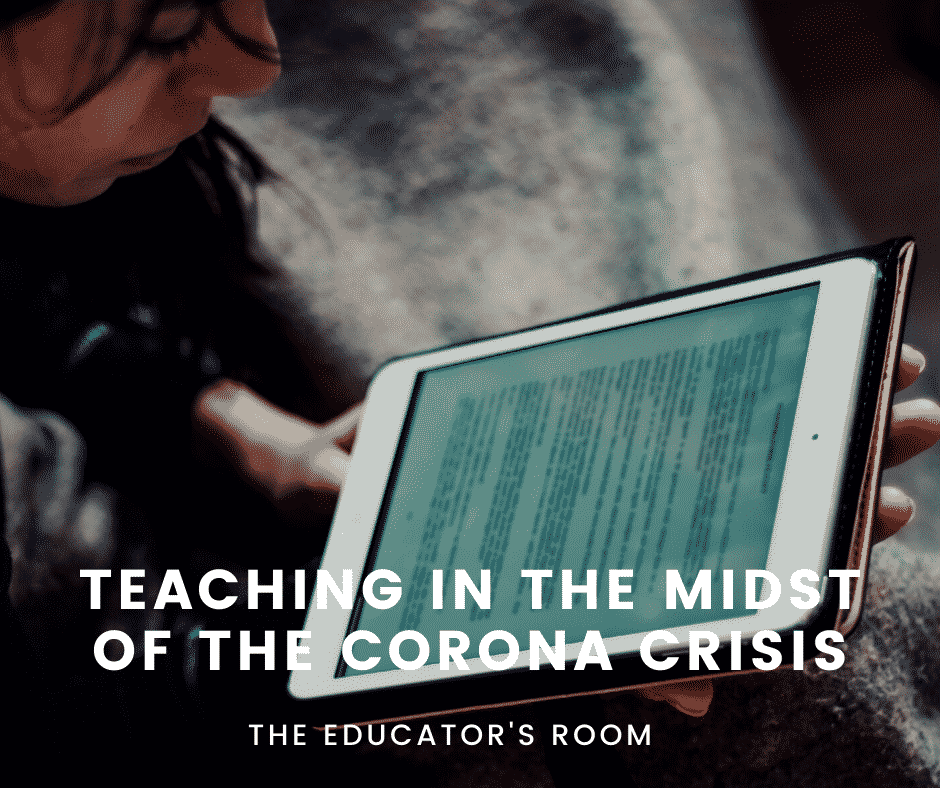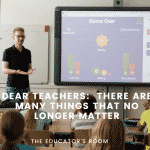On Friday afternoon everyone in my classroom suddenly fell silent as we waited for the bell to ring.
“I’ll see everyone on Monday, I hope. But who knows?”
I had meant it as a throwaway sentiment, a verbal filler to occupy the dead air before the bell rang, ending the oddest, most surreal week in my twenty-two-year teaching career.
The tragic undertone of my own words surprised me. When I tried to speak again, I found my voice starting to crack.
“Chin up everyone, chin up.”
But the damage had been done. My high school seniors were emotional, confused, and most of all, utterly terrified. The day had brought a constant parade of bad news about fellow school closings to the north and south of us. We had the unmistakable sensation of being surrounded.
In first period, the students wanted to discuss the Oregon governor shutting down all the schools. By the middle of the day, LA Unified, San Diego Unified, and Santa Clarita schools had all announced closures. Rumors were swirling that our fellow northern Central Valley brethren, Fresno, was about to close down. By the end of the day, all Catholic schools in my hometown of Bakersfield had followed suit.
I was supposed to be teaching my AP Macroeconomics students about the structure of the Federal Reserve, about the tools of monetary policy, showing them how to draw graphs of the “loanable fund market” or how to compute the total money supply. By mid-March, senior enthusiasm for learning typically begins to wane as the weather improves and the birth pangs of spring come to life.
But this March, I would do anything to be dealing with the faux syndrome of senioritis instead of a real, global pandemic.
I know my subject well. I know my students well. For non-teachers, this might sound counterintuitive, but the better one knows his/her subject, the easier it is to respond to a question with, “I don’t know. Good question.”
However, I have said “I don’t know” more in the last week than I have in my entire career. And the questions have nothing to do with economics.
“When do you think they will close Bakersfield schools?”
“How long do you think we will be gone?”
“Do you think we are overreacting or are we right behind Italy?”
“Are we going to have a senior prom?”
“Are we going to have graduation?”
“Are we going to have to extend school a few weeks into June?”
I don’t know. I don’t know. I don’t know.
As the days wore on last week, a sinister inertia of cancellations began to knock over the traditional dominos of school life. It started with canceled field trips. Next, sports teams were no longer competing. Concerts, plays, debate competitions and the like were ended in quick succession. A powerful sense of foreboding presided over my classroom by Thursday afternoon as my students began to realize that so many of the fixtures of a traditional senior year were no longer fixed at all, but instead suddenly and unfairly uprooted before their eyes.
My own children felt the powerful pangs of loss. My eldest daughter is a fierce speech and debater who learned the California State championship had been canceled.
“Well, I guess my college application is going to be a bit weaker next year,” she sadly intoned.
My youngest daughter had been practicing months for the school play Matilda, which had to be delayed.
Every child in our schools can list the losses this epidemic is suddenly foisting upon them. But the deeper and more nuanced tragedy is that the ripples will continue in ways none of us can even begin to comprehend right now.
In the midst of all this classroom stress and strain, a powerful but quiet truth about modern schools emerged: schools are much more than educational institutions. Instead, schools are now epicenters in the delivery of social services for impoverished and disadvantaged students. As society has stepped down, our schools have stepped up. This has been the case for a long time but it has taken COVID-19 make it explicit to many of our fellow citizens.
[bctt tweet=”“When this epidemic dies down, we as a society are going to need to have a hot chat.” username=””]
As one of my colleagues powerfully pointed out: “When this epidemic dies down, we as a society are going to need to have a hot chat. We aren’t keeping the schools open because our kids need desperately to learn earth science or physics (or geometry or English). We’re keeping them in session because if we don’t, our babies won’t eat and our children won’t have access to the mental health and support services that are keeping them alive day in and day out.”
I look forward to this “hot chat.” I just wish it didn’t take a pandemic to teach us that we needed to have it.





